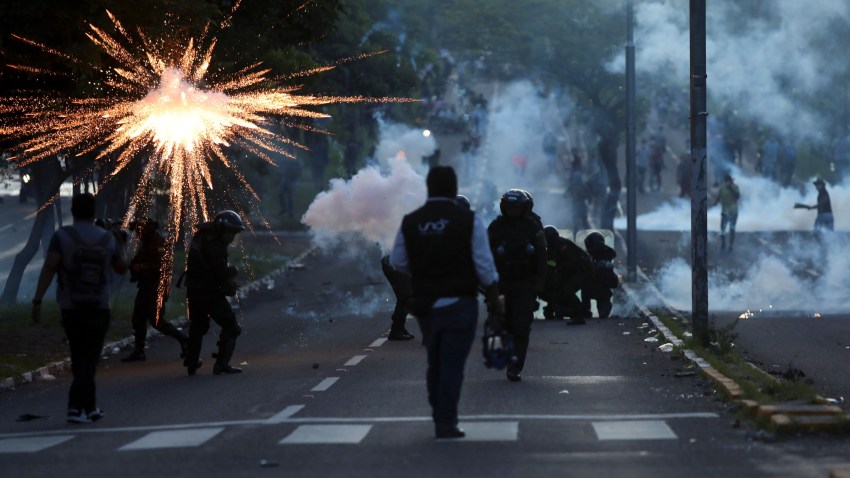On Dec. 28, in the lull between Christmas and New Year, Bolivian police arrested Luis Fernando Camacho, a prominent opposition leader and governor of Santa Cruz, the country’s largest, most productive region. Camacho was arrested in the city of Santa Cruz and then taken to La Paz, where he was charged with “terrorism” for his role in the alleged coup of 2019, following that year’s contested presidential election.
Camacho’s arrest has aggravated political polarization in Bolivia, with supporters of the ruling Movement Toward Socialism party, or MAS by its Spanish acronym, viewing it as belated justice, while the opposition says it was tantamount to a kidnapping and a sign of the country’s slide toward authoritarianism.
An arrest warrant for Camacho had been issued in October after he refused to present himself before the justice system in La Paz, Bolivia’s political capital, saying he would only do so at the regional justice department in Santa Cruz. Perhaps he anticipated the risk of detention if he went to La Paz. Nonetheless his arrest in Santa Cruz—his home territory—came as a shock.

